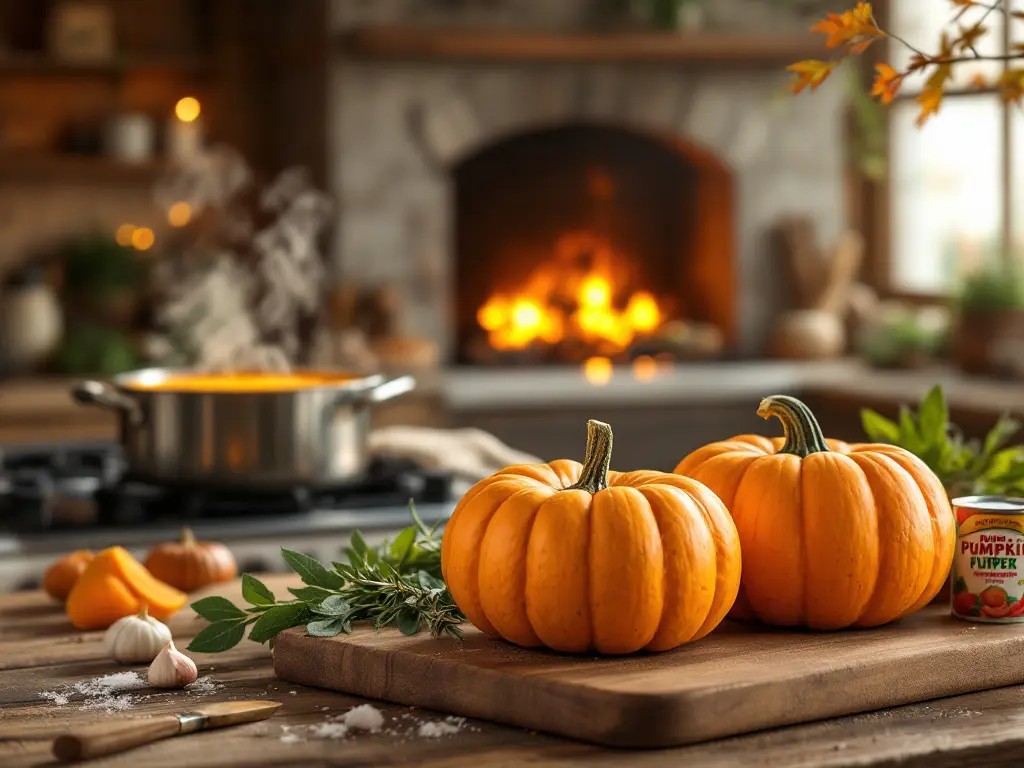
What Is Pumpkin Puree?
Pumpkin puree is the smooth, blended flesh of cooked pumpkins. It is the base for countless recipes, including the Perfect Pumpkin Pie Recipe. However, not all pumpkin products are created equal, and understanding their differences is essential for successful baking:
- Pumpkin Puree: Pure pumpkin with no added ingredients, ideal for versatile use.
- Pumpkin Pie Filling: Pre-mixed with sugar and spices, it’s ready for pies but unsuitable for other recipes like soups or muffins.
- Fresh Pumpkin: Whole, uncooked pumpkin flesh that needs preparation to become puree.
For detailed steps on turning fresh pumpkin into puree, refer to our section on How to Make Homemade Pumpkin Puree.
Fresh vs. Canned Pumpkin: Pros and Cons
Fresh Pumpkin
- Flavor and Texture: Fresh pumpkin offers a natural, robust flavor with a lighter texture, perfect for recipes like classic pumpkin pie.
- Best Varieties: Sugar pumpkins and pie pumpkins are ideal due to their sweeter taste and smoother flesh.
- Effort Required: Fresh pumpkin involves cleaning, roasting, and blending, which may not suit all bakers.
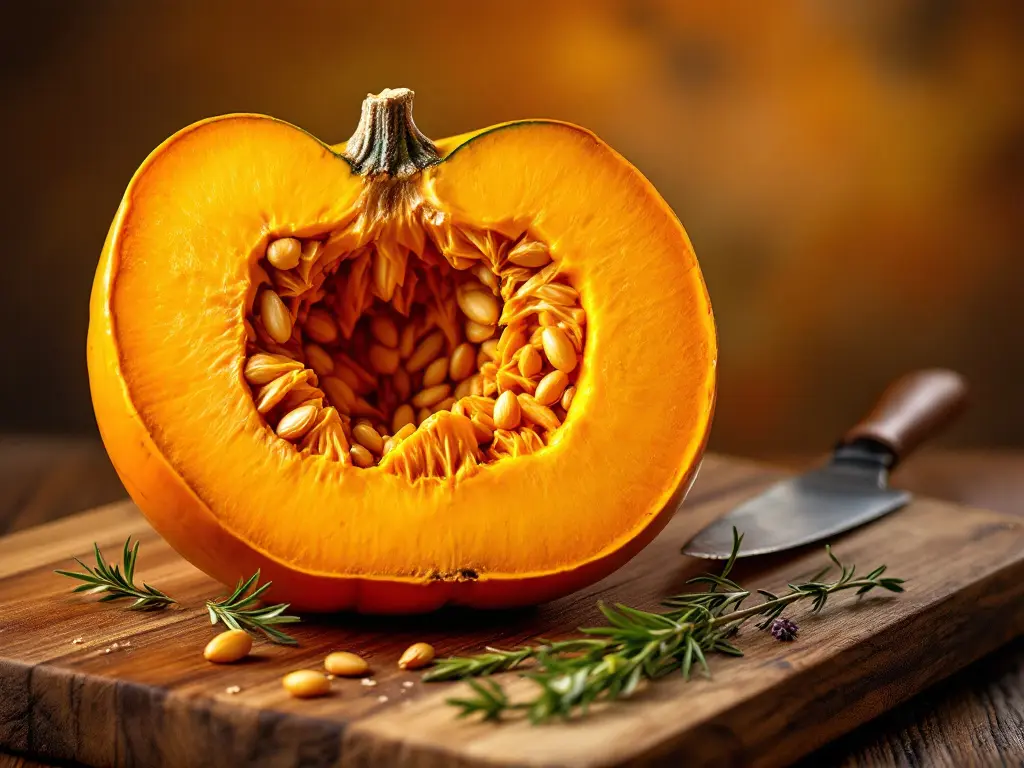
Canned Pumpkin
- Convenience and Consistency: Canned pumpkin is pre-cooked, blended, and offers consistent texture and moisture levels, making it ideal for avoiding common pie-making mistakes.
- Choosing the Best Brand: Look for labels marked “100% pumpkin” and avoid additives. Organic options often deliver a richer flavor.
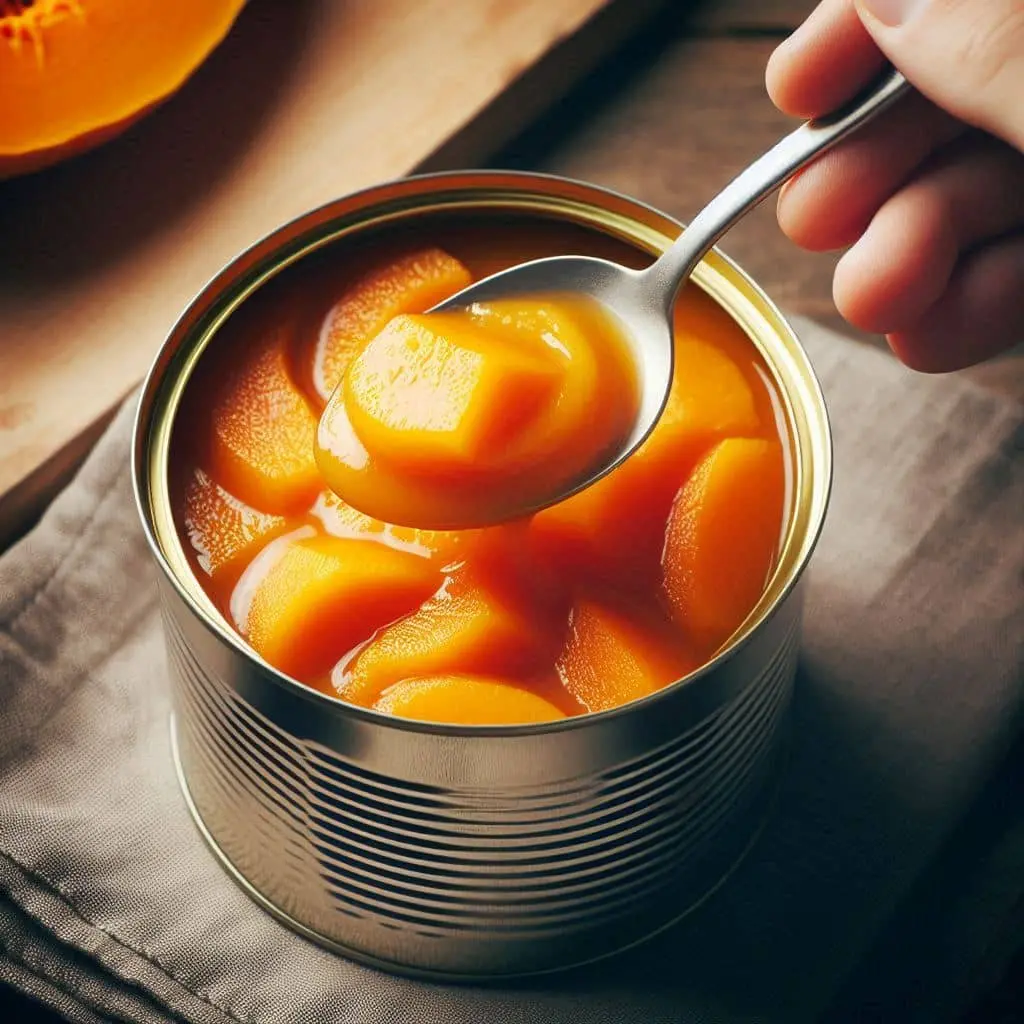
How to Make Homemade Pumpkin Puree
If you value control over flavor and texture, homemade pumpkin puree is the way to go. This method ensures your puree complements any recipe, including those requiring specialized tools for pie perfection.
- Select the Pumpkin: Choose a sugar or pie pumpkin. Wash it, then cut it in half and remove the seeds.
- Roast: Preheat your oven to 375°F (190°C). Place the pumpkin halves cut side down on a baking sheet and roast for 45-60 minutes, or until the flesh is tender.
- Blend: Scoop out the flesh and blend it in a food processor until smooth. Add water if necessary to achieve the desired consistency.
- Store: Transfer to an airtight container and refrigerate for up to 5 days. For longer storage, freeze in pre-measured portions.
Tips for Success
- Choosing the Right Pumpkin: Sugar or pie pumpkins are smaller and sweeter, making them ideal for puree. Avoid larger carving pumpkins, as they are less flavorful and more watery.
- Roasting Technique: Roasting the pumpkin cut side down helps retain moisture and enhances the flavor.
- Consistency: Adding a small amount of water during blending can help achieve a smoother consistency, especially if the puree is too thick.
- Storage: Freezing the puree in pre-measured portions (e.g., 1 cup) makes it convenient for future recipes.
Uses for Homemade Pumpkin Puree
- Pies and Desserts: Perfect for pumpkin pie, pumpkin bread, and other baked goods.
- Soups and Stews: Adds a rich, creamy texture to soups and stews.
- Smoothies and Beverages: Blend into smoothies or lattes for a seasonal twist.
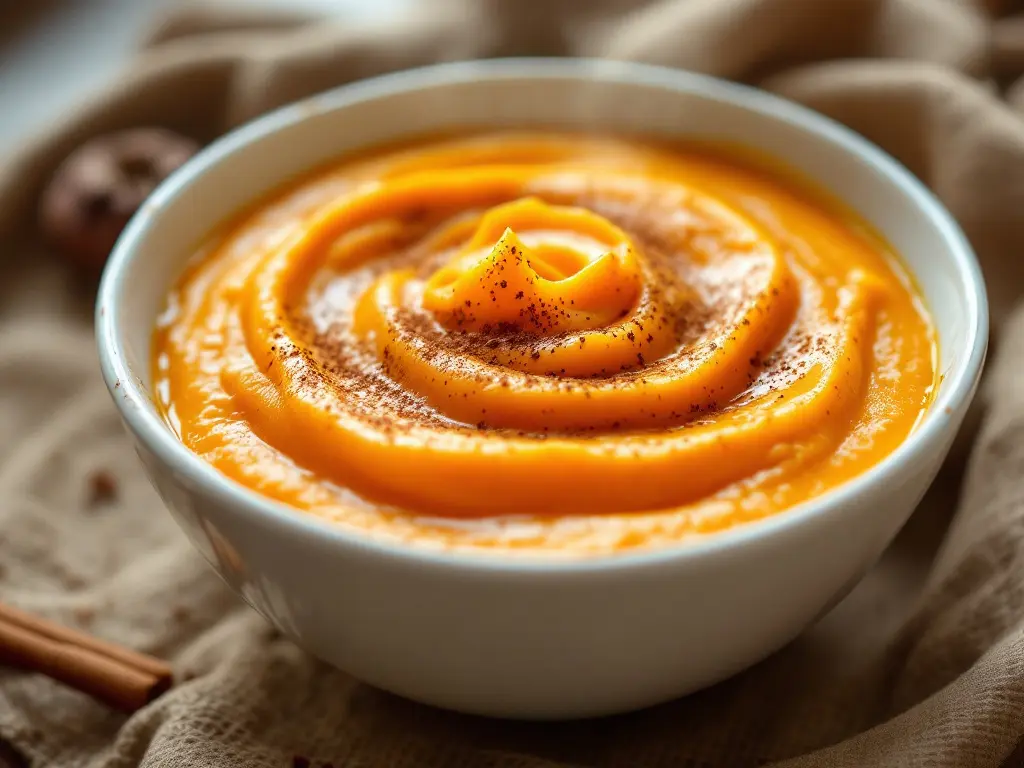
Common Mistakes When Using Pumpkin Puree
Even seasoned bakers make mistakes when working with pumpkin puree. Avoid these pitfalls:
- Watery Puree: Strain fresh puree through cheesecloth to remove excess moisture before using it in recipes.
- Bland Flavor: Roasting pumpkin instead of boiling enhances its sweetness and depth of flavor, a tip especially useful for unique pie variations.
FAQ
Can I substitute fresh puree for canned in any recipe?
Yes, but fresh puree often has higher moisture content. Adjust your recipe to prevent sogginess, especially in crusts.
How long does homemade puree last in the fridge?
Homemade puree can last up to 5 days in an airtight container. For longer storage, freeze it.
Can I freeze homemade pumpkin puree?
Yes! Freeze portions in airtight containers or freezer bags for up to 3 months.
Conclusion
Both fresh and canned pumpkin puree have their merits. While fresh provides unparalleled flavor, canned offers unmatched convenience. Whichever you choose, your pumpkin dishes will shine with the right technique and tools.
Looking for more pumpkin tips and inspiration? Check out these related articles:
- Perfect Pumpkin Pie Recipe: Tips, Tricks, and Step-by-Step Guide
- 5 Essential Tools Every Baker Needs for Pumpkin Pie
- Pumpkin Spice: Health Benefits and Its Cultural Popularity
- 7 Common Pumpkin Pie Mistakes and How to Avoid Them
- Creative Pumpkin Pie Variations: Vegan, Gluten-Free, and More
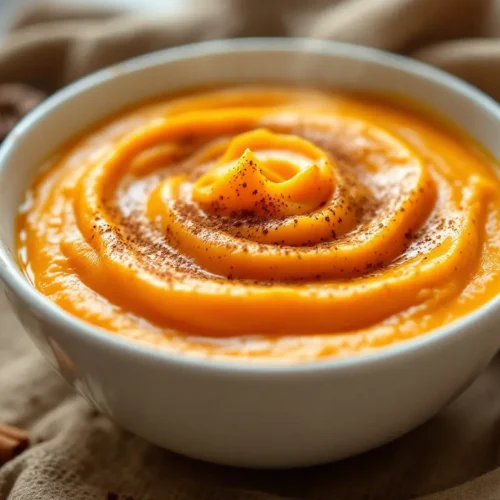
Homemade Pumpkin Puree
Equipment
- Oven
- Baking Sheet
- Food Processor
- Airtight Container
Ingredients
- 1 Sugar or Pie Pumpkin
- Water as needed
Instructions
- Select the Pumpkin:
- Choose a sugar or pie pumpkin.
- Wash it thoroughly.
- Cut it in half and remove the seeds.
- Roast:
- Preheat your oven to 375°F (190°C).
- Place the pumpkin halves cut side down on a baking sheet.
- Roast for 45-60 minutes, or until the flesh is tender.
- Blend:
- Scoop out the flesh from the roasted pumpkin.
- Blend it in a food processor until smooth.
- Add water if necessary to achieve the desired consistency.
- Store:
- Transfer the puree to an airtight container.
- Refrigerate for up to 5 days.
- For longer storage, freeze in pre-measured portions.
Notes
Roasting Technique: Roasting the pumpkin cut side down helps retain moisture and enhances the flavor.
Consistency: Adding a small amount of water during blending can help achieve a smoother consistency, especially if the puree is too thick.
Storage: Freezing the puree in pre-measured portions (e.g., 1 cup) makes it convenient for future recipes.
